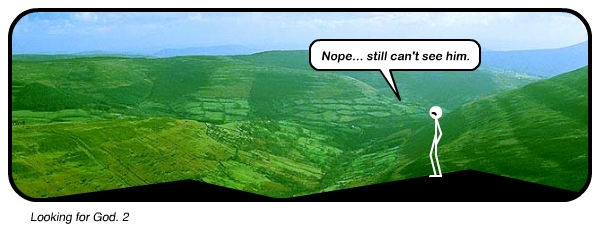Last week I wrote a blog post about atheism, and it drew a couple of comments that got me to thinking. Before I go on I'll restate the paragraph that brought about the comments and than the comments that began this thought process. Here's the paragraph:
atheism always seems to have one of 2 causes at the core. First, the vast majority of atheists do not know how to deal with the presence of evil. In other words, they cannot reconcile the existence of suffering in the world with the existence of a loving God. (If anyone actually wants to read it, I can write a couple of posts addressing this problem.) Secondly, the desire to be in control of one’s own life. In other words the childish attitude that,”nobody can tell me what to do” extends even as far as to an all-powerful God. And I again remind you of the words of Ivan from The Brothers Karamazov, if there is no god there is no morality. (Somebody in Sunday School taught me this second one a while back and I’ve noticed it as a trend ever since.)
Here are the comments that came as a result of that paragraph. This one was first:
I’m sorry, but as an atheist I have to tell you that both of your reasons why people become atheists do not, at least, apply to me.
I’m an atheist because of the lack of evidence for the claims made by religions and religious people.
That’s it.
This one followed and agreed:
Neither of the reasons you give for atheists being atheists apply to me. It’s simply the lack of evidence for the existence of any Gods.
These comments coupled with the fact that almost everybody on the planet believes in a god in some form got me to thinking. So today I would like to suggest to my readers that it seems to me the onus of proving a position falls to them.
What I mean by that is that virtually everyone on the planet, believes in some god, because God has made himself known. I am not arguing for Christianity here, merely simple theism. (Theism is the belief in a god who is involved in His creation.) People seeing creation from the very, very minute to the vastness of space realize that there must be something greater than us. And science or naturalism, or whatever worlview you view the world through other than theism will never answer the most basic of questions. Where did all the stuff come from?
There are those who are firm atheists. They do not believe in any god, and do not see evidence for Him in creation, or beauty, or consiousness, or detail, but those people are a small minority. And to me it seems that rather than them feeling the need to be convinced of the existence of God, they need to be convinced of his non-existence. To put it another way, they should not see a lack of evidence for God as a sufficient condition to doubt His existence. They should need a preponderance of evidence of His non-existence to arrive at that position. Let me try and say that a third, less-convoluted way. Belief in God should be the default system of belief, with only overriding proof to change that position. (I actually believe that this is the position of most and their "proof" is the existence of evil. See the first paragraph.)
I don't want to be antagonistic or disrespectful of my commentors. I am grateful for their comments and that they read my post. But their comments got me thinking and I wanted to share those thoughts with my readers.
I leave you with this thought. There are virtually no rural atheists. Why? Because in the country at night you can see 10 times as many stars as you can in the city. Rural people are simply confronted by the vastness of space on a greater scale. Every time I go back home I am astounded by the stars in the sky as I drive from place to place. I urge you, if you are from a large city visit the country and be amazed. 
---Update---
*****Please read before you Comment*****
This post has drawn a few comments already. Please before you comment understand that I am NOT arguing the existence of God based on His popularity. In fact, in this post I am not arguing the existence of God at all. (The best arguments are very old and have been dealt with for a long time. See Anselm's Proslogion, Aquinas's Five Ways, or even the Kalam argument) I am merely begging the question - Why should the burden of proof not be with the atheists? I beg the question because the prima facie position for most people when they look at the universe is that God exists. If you want to argue for the existence or non-existence of God there are about a million places on the web to do that. I don't want that in my comments section. I would let it go on, but I am very concerned about the tone of the comments received so far.
Here's what I will moderate out of my comments-
- Insulting the intelligence of anyone for either belief or disbelief
- Insulting people who live in rural areas
- making the point that popularity does not equal truth
Please do not do those things. But feel free to tell me why the burden of proof belongs to the first blush position of the theists.


